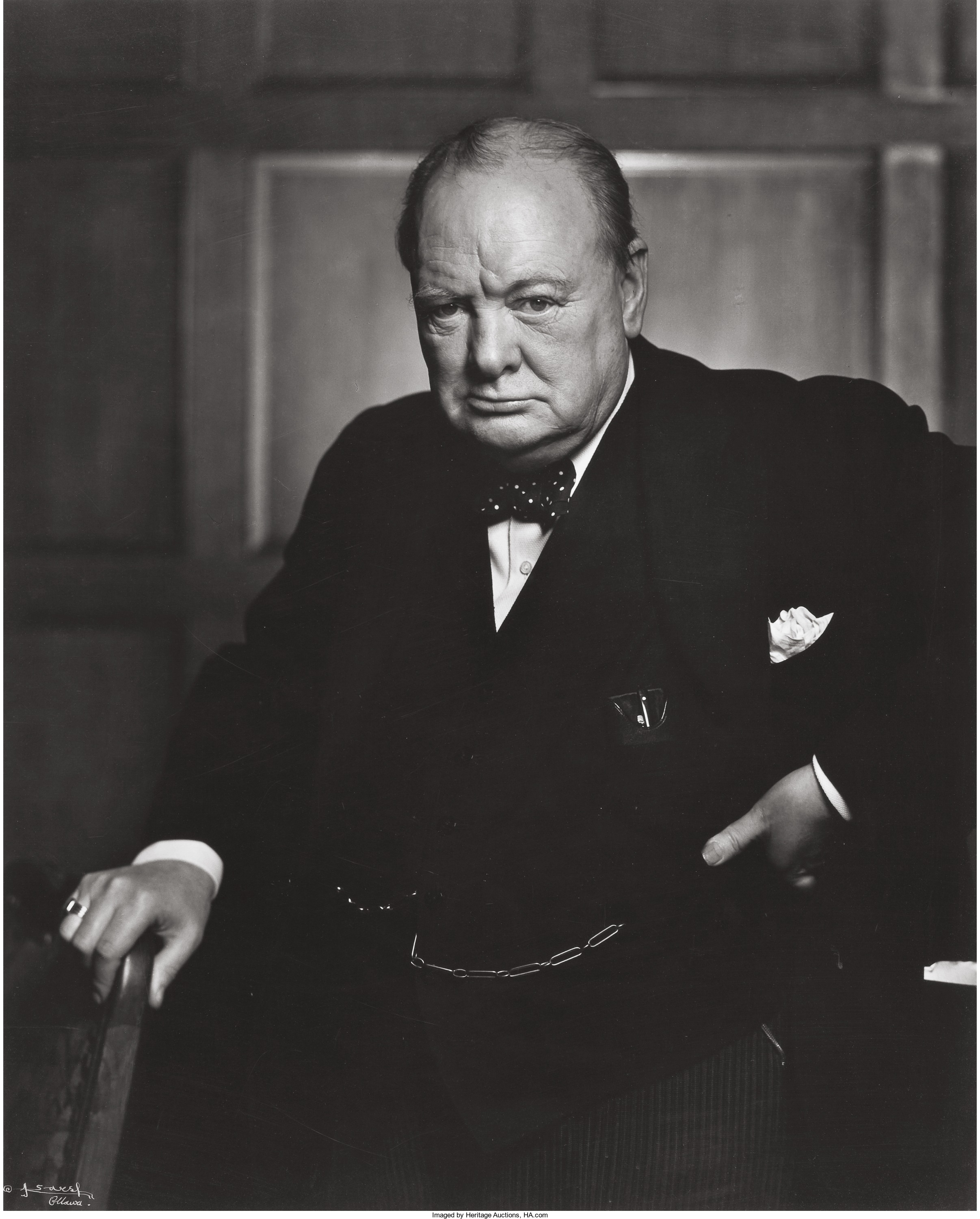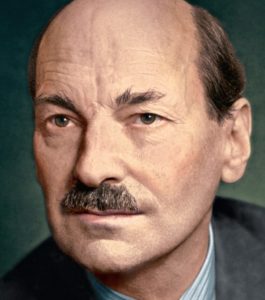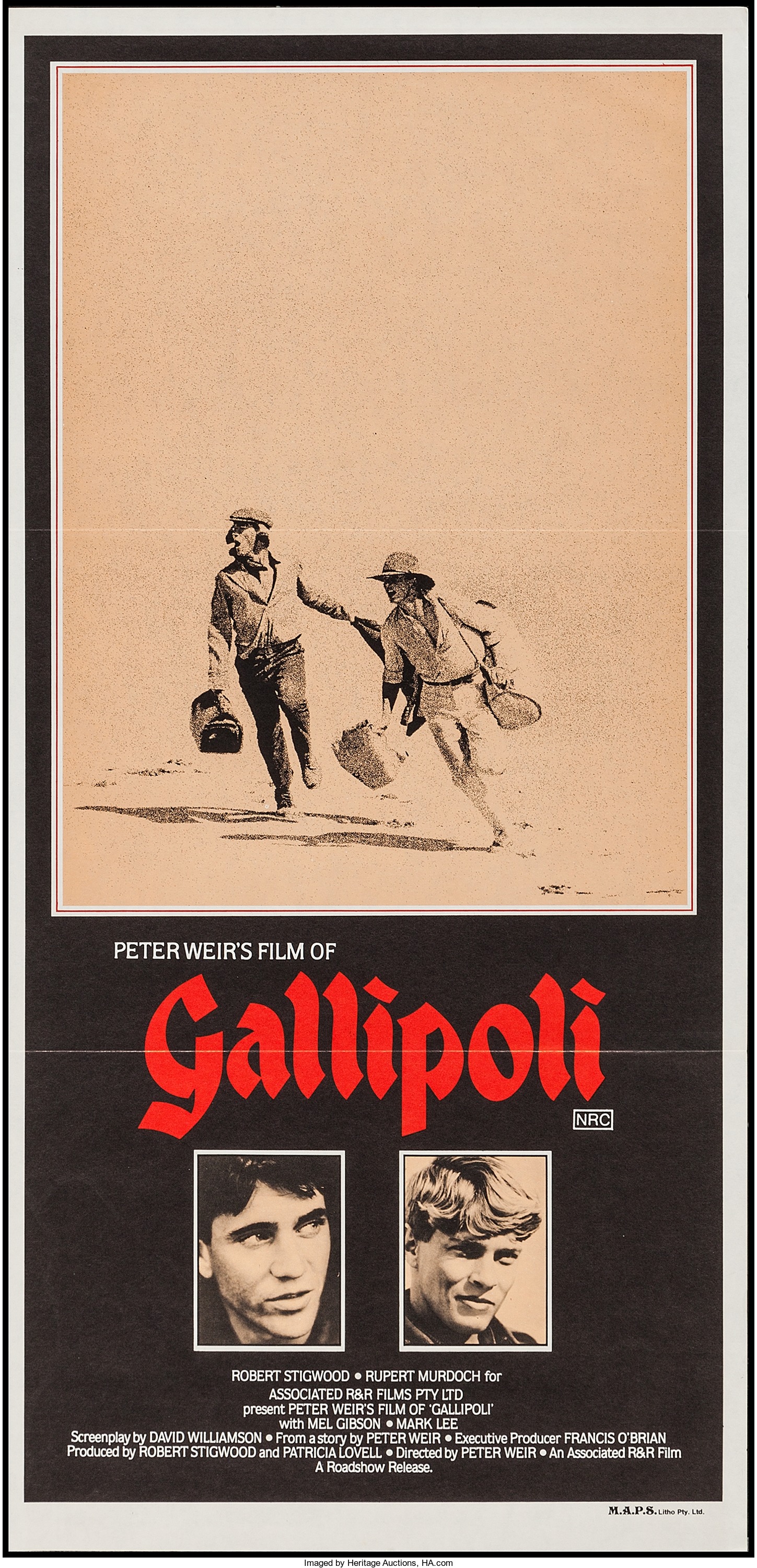
By Jim O’Neal
When Clement Attlee was asked if he wanted to comment on the campaign of 1945, his response was a simple “No.” During this election for Prime Minister of Great Britain, he and wife Violet traveled the countryside extensively in their modest (battered) family car, advocating for a totally new, post-war social policy. One of his more effective political slogans was “You Can Trust Mr. Attlee.” It worked surprisingly well as he led the Labour Party to an upset, landslide win over the venerable Winston Churchill.
Attlee became one of the most successful leaders in modern Britain, despite being habitually shy, laconic, self-deprecating and excessively modest. As Churchill once quipped, “Clement Attlee was a modest man who had much to be modest about.”
Churchill respected Attlee for his basic honesty and firm dedication to accountability. They had served together during World War I and Attlee was even part of the British Army during the disastrous Gallipoli Campaign, which Churchill had conceived while the First Lord of the Admiralty. The strategic premise was to knock Turkey out of the war by attacking the Dardanelles. The campaign went so badly that Churchill was demoted, resigned from the Conservative Cabinet, and ended up commanding an infantry battalion of the Royal Fusiliers.

Attlee naively believed that the plan had been sound strategically and had only failed due to poor military execution. In Attlee’s own words, “There was only one brilliant strategic idea in WWI and that was Winston’s ‘the Dardanelles.’” Historians still argue over this yet today, but it was enough to form a bond between the two future prime ministers … one a pure socialist and the other an imperialist of the first order.
During the Second World War (which was just a continuation of the first with a 20-year pause), Attlee served under Churchill in the coalition government of 1940-45 and was the first person to hold the office of Deputy Prime Minister. He somehow held the Labour Party together despite numerous divergent viewpoints and personal ambitions. The colossal egos of Herbert Morrison, Sir Stafford Cripps (reputed to have the finest mind in England), and union strongman Ernest Bevin (dedicated to absolute equality throughout the British Empire) required a rare blend of political leadership – perhaps unique to Attlee.
It is here (in my humble opinion) where we start to witness the real decline of the British Empire. Independence in India, the partition of Pakistan, independence in Burma (Myanmar), Sri Lanka, Palestine and Jordan and exiting Greece. This was followed by the inevitable nationalization of the Bank of England, along with the iron, coal and steel industries. Then, importantly, there was the creation of a comprehensive welfare state. To the United States, the phrase “British socialism” signified economic and political bankruptcy; one of the few things Democrats and Republicans could agree on.
In Attlee’s rationale, these Labour Party policies were merely measures to ensure full employment and welfare based on managed capitalism; “accomplishments” that remained in place until his death in 1962 and beyond. Fortunately, a research chemist-turned-barrister was elected to Parliament in 1959, and 20 years later became the first woman to hold the office of Prime Minister. She was the longest-serving British Prime Minister in the 20th century. Her name was Margaret “The Iron Lady” Thatcher.
The small island that had once ruled the seas and oceans of the world – along with much of its land – was about to enter an era known now as “Thatcherism.” Many, including me, appreciate strong, enlightened leadership grounded in economic and political freedom. She fit the model perfectly.
 Intelligent Collector blogger JIM O’NEAL is an avid collector and history buff. He is president and CEO of Frito-Lay International [retired] and earlier served as chair and CEO of PepsiCo Restaurants International [KFC Pizza Hut and Taco Bell].
Intelligent Collector blogger JIM O’NEAL is an avid collector and history buff. He is president and CEO of Frito-Lay International [retired] and earlier served as chair and CEO of PepsiCo Restaurants International [KFC Pizza Hut and Taco Bell].

